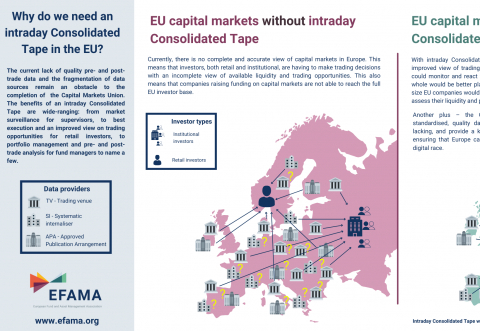The European Fund and Asset Management Association (EFAMA) has today published its latest monthly Investment Fund Industry Fact Sheet, which provides net sales data on UCITS, and AIFs sold in July 2021, at European level and by country of fund domiciliation.
Bernard Delbecque, Senior Director for Economics and Research at EFAMA, commented: “Robust net inflows into long-term UCITS continued as investor confidence was buoyed by positive macro-economic data and an accelerating vaccine roll-out in Europe.”


























































